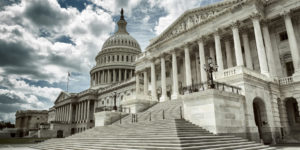Whitepapers
Income Opportunities in Rising Rate Environments
Introduction The most recent round of quantitative easing has flooded the fixed income markets with cash, pushing the most commoditized sectors of the bond market to historically low yields and tight spreads. Bond investors with allocations to corporate-focused funds have experienced very strong returns over the past twelve months which may come at the expense…
Read MoreOpportunity Zones: Potential Impacts on Structured Credit Markets
The Tax Cuts and Jobs Act of 2017 (the “Act”), perhaps the biggest legislative victory of the Trump Administration to date, re-wrote much of the country’s tax code, lowering both individual and corporate tax rates while amending various deductions for the first time in over thirty years. Initially, media and public attention were largely focused…
Read MoreTariffs: Understanding the Effects on the U.S. Housing Market and Structured Credit
Tariffs and trade embargos have been a key piece of U.S. foreign policy for much of our history. From the nation’s founding through the early part of the 20th century, tariffs were regularly imposed to protect U.S. economic interests. While protectionist policies took a step back in the post-World War II era, they have come…
Read MoreStudent Loan Debt: Impacts on the U.S. Housing and Structured Credit Markets
At $1.52 trillion outstanding, student loan debt is now the second largest form of consumer debt in the United States, behind only residential mortgages. This growth has been particularly pronounced among young borrowers. Between 2005 and 2014, average real student loan debt per capita for individuals aged 24 to 32 doubled from $5,000 to $10,000,…
Read MoreFalling Rates: Impacts on the Structured Credit Markets
As the U.S. economy continued to strengthen in 2018, the Federal Reserve raised its benchmark interest rate four times. With the market pricing in additional future hikes, interest rates rose throughout the year, culminating with the 10-year U.S. Treasury yield reaching 3.24% in November, a level not seen in over seven years. The steady march…
Read MoreAuto Lending: What to Make of the Recent Increase in Delinquencies?
In the years immediately following the 2008 financial crisis, the availability of consumer credit tightened dramatically. As a result, the personal balance sheet of the average American improved as consumers were forced to de-lever in the absence of financing options. However, while mortgage credit issuance, the largest form of consumer credit, came to a virtual…
Read MoreGovernment Shutdowns: Analyzing the Economic Impacts of a “New Normal” Negotiating Tactic
On January 27, 2019, President Donald Trump signed a stopgap bill to fund the federal government for three weeks. The bill ended the longest government shutdown in history, which kept 800,000 federal employees out of work for an unprecedented 35 days and shuttered most federal agencies. The prolonged shutdown was the result of partisan gridlock…
Read MoreBrexit: Potential Impacts on U.K. Housing and Structured Credit
The United Kingdom’s (UK) decision to leave the European Union (EU) by referendum in June 2016 (“Brexit”) has been dominating global news headlines ever since, not least due to the closeness of the vote (51.9% v 48.1% leave/remain), but also due to the fact that even now, almost three years since the referendum was first…
Read MoreThe Decline of Retail: Implications for the CMBS Market
Retail bankruptcies and store closures have filled news headlines in 2018. Notable chains such as Toys-R-Us and Bon-Ton, ingrained in our culture and economy for decades, have gone into liquidation. Others such as Sears and Kmart have filed for bankruptcy after many years of weak performance. Store closure announcements seem to be a regular occurrence,…
Read MoreLeaving LIBOR: How Did We Get Here and What Comes Next?
The London Interbank Offered Rate, better known by its abbreviation, LIBOR, has been a key economic benchmark interest rate for decades. However, in 2017, the Financial Conduct Authority (FCA) announced it would phase out LIBOR, potentially impacting trillions of dollars of financial instruments linked to the rate, especially those in the structured credit and interest…
Read More









